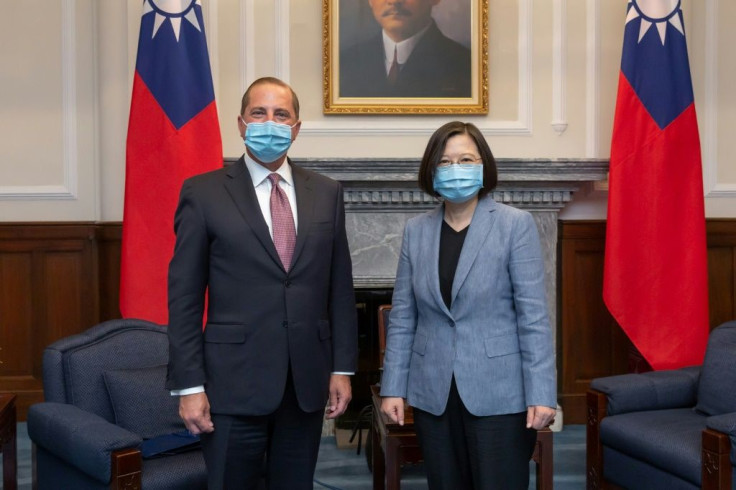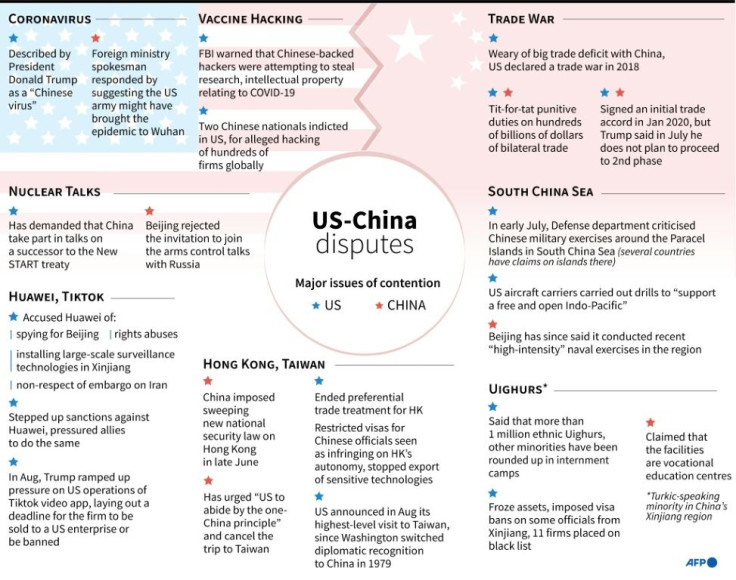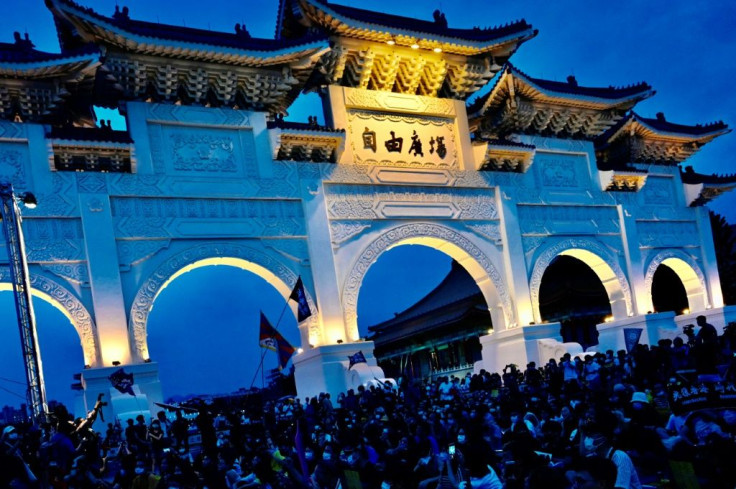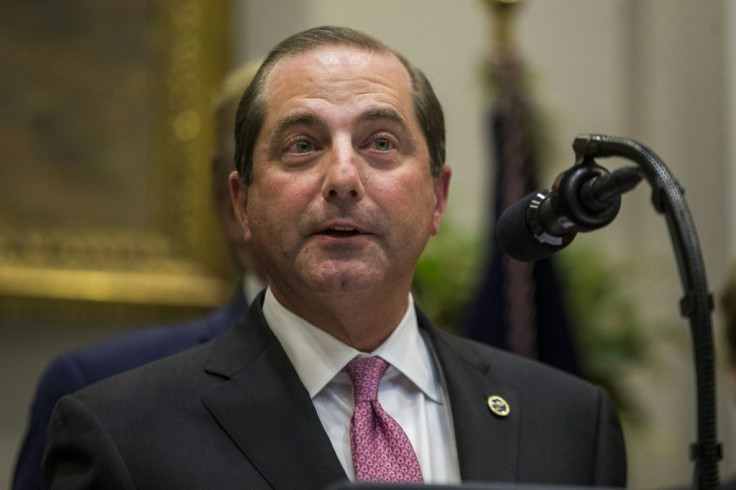US Health Chief Slams China Over Virus On Taiwan Trip

The coronavirus might have been stamped out more quickly had it emerged in democratic Taiwan instead of autocratic China, the US health secretary said Tuesday during a historic diplomatic trip to Taipei.
Alex Azar's renewed criticism of China's handling of the pandemic is likely to further stoke already fiery tensions between the United States and China, where the disease first appeared late last year.
The two powers are clashing over a wide range of trade, military and security issues, as well as the pandemic.
"The Chinese Communist Party had the chance to warn the world and work with the world on battling the virus. But they chose not to, and the costs of that choice mount higher every day," Azar said in a speech at a public health college.
"I believe it is no exaggeration to say that, if this virus had emerged in a place like Taiwan or the United States, it might have been snuffled out easily," he added.
"Instead, Beijing appears to have resisted information-sharing, muzzling doctors who spoke out and hobbling the world's ability to respond."

Azar's three-day trip is billed as the highest-level visit from the United States since it switched diplomatic recognition from the island to China in 1979.
Earlier Tuesday, he held a rare meeting with Taiwan's Foreign Minister Joseph Wu, who said Taiwan lives under the constant threat of having its freedoms taken away by China.
"Our life has become increasingly difficult as China continues to pressure Taiwan into accepting its political conditions, conditions that will turn Taiwan into the next Hong Kong," Wu said.

A crackdown on dissent in Hong Kong has gathered pace since China imposed a sweeping security law on the financial hub in June, with opposition politicians disqualified and activists arrested.
That has caused alarm in Taiwan -- a self-ruled island of 23 million people that Beijing claims as its own territory and has vowed to one day seize, by force if necessary.

"The people of Taiwan are all too familiar with dealing with threats, be it military, diplomatic or the threats of epidemics," Wu said.
Beijing has ramped up diplomatic, military and economic pressure on Taiwan since the 2016 election of President Tsai Ing-wen, who won a second term earlier this year with a landslide.
She rejects Beijing's stance that Taiwan is part of "one China" and instead views the island as "already independent".
China has suggested Taiwan could be granted a version of the "one country, two systems" model it uses for Hong Kong, which supposedly guarantees certain liberties and autonomy from the authoritarian mainland.
All mainstream political parties in Taiwan have rejected the proposal.
And what little enthusiasm there was for the idea has all but evaporated as China cracks down on Hong Kong's democracy movement.
On Monday, Taiwan said China sent fighter jets over a de facto border separating the two rivals in the Taiwan Strait shortly before Azar met President Tsai.
Taiwan, which has fewer than 500 confirmed COVID-19 cases including seven deaths, has been able to contain the virus because of its democracy and transparency, Wu said.
"In contrast to an authoritarian model where the authority is too crippled to disclose fact, in the transparent Taiwan Model, we simply can't afford to lie or conceal."
China has also managed to get its outbreak largely under control, with sweeping lockdowns and travel restrictions.
In contrast, the United States has the highest death toll in the world with more than 160,000 fatalities.
US President Donald Trump has been accused by critics of taking a harder stance towards China to distract from his coronavirus response as he seeks re-election in November.
© Copyright AFP {{Year}}. All rights reserved.





















